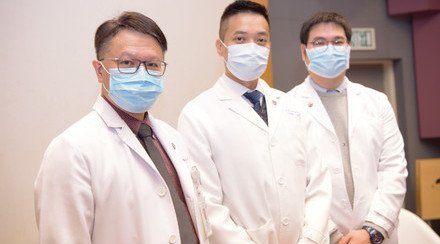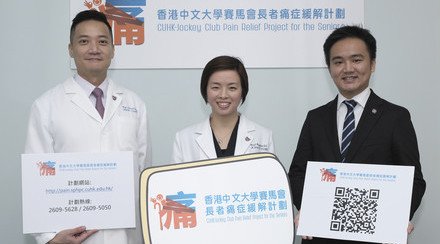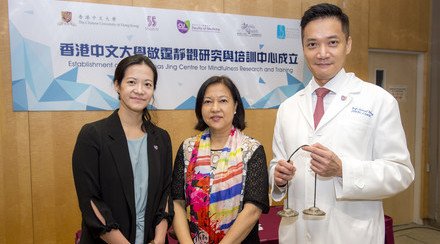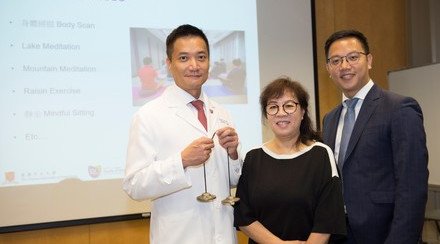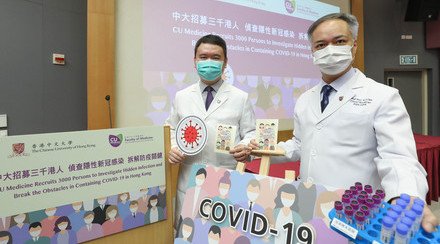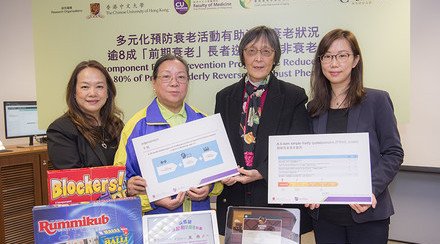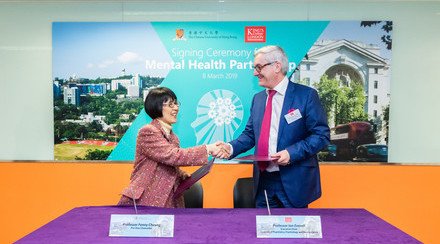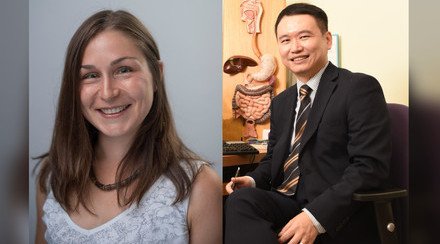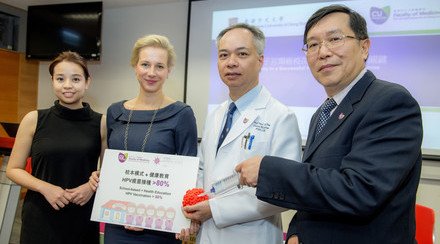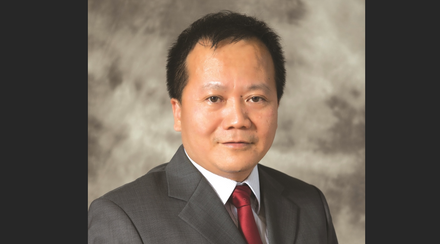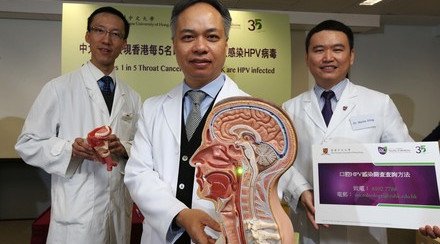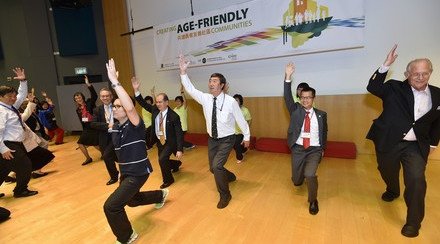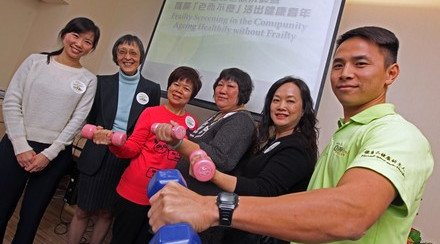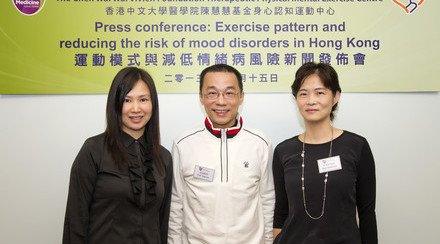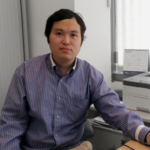CUHK Established the Institute of Health Equity Investigates Housing Affordability Effects on Physical and Mental Health
The newly established Institute of Health Equity of The Chinese University of Hong Kong (CUHK) has collaborated with the Jockey Club School of Public Health and Primary Care of the Faculty of Medicine at CUHK in a study which investigates the effects of housing affordability on physical and mental health in Hong Kong. The findings show that unaffordable housing worsens the physical and mental health of Hong Kong people, and the relative deprivation of necessities has a mediating role between housing affordability and health. It is the first “health equity” study of its kind in Asia and the results were published in the Journal of Epidemiology and Community Health.
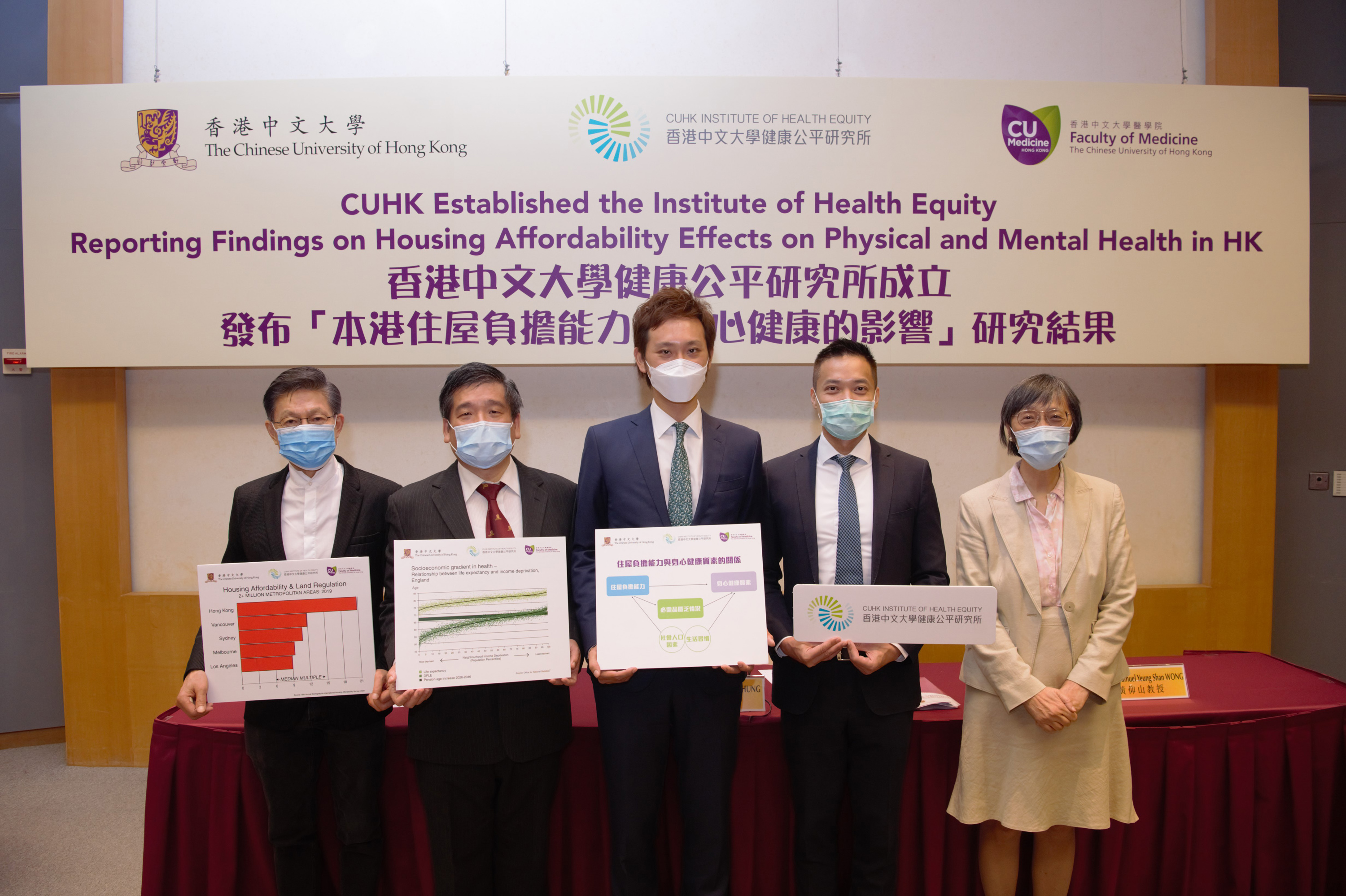
(From left) Professor E.K. YEOH, Co-Director of the Institute and Professor of Public Health of the Jockey Club School of Public Health and Primary Care, Faculty of Medicine, CUHK; Professor WONG Hung, Associate Director of the Institute and Associate Professor of the Department of Social Work at CUHK; Professor Roger Yat Nork CHUNG, Associate Director of the Institute and Assistant Professor of the Jockey Club School of Public Health and Primary Care, Faculty of Medicine, CUHK; Professor Samuel Yeung Shan WONG, Professor and Director of the Jockey Club School of Public Health and Primary Care, Faculty of Medicine, CUHK; and Professor Jean WOO, Emeritus Professor of Medicine of the Faculty of Medicine at CUHK.
What is “health equity”?
“Health equity” is concerned with disparities in the distributions of healthcare resources, healthcare accessibility, risks of infections, as well as overall health and well-being across members of the population, and whether these disparities are remediable or unavoidable. If these disparities are remediable and unnecessary, they are said to be unfair or inequitable. In many countries or cities around the world, regardless of the degree of socioeconomic development, huge disparities in these circumstances are prevalent, and the socially disadvantaged (e.g. people of lower socioeconomic position, older persons, migrants, ethnic minorities, among others) tend to bear a greater burden of disease as well as a worse overall health status. The COVID-19 pandemic has also exacerbated the “health inequity” situation around the world.
The lower the housing affordability, the more adverse effects on physical and mental health
The research team surveyed 1,978 Hong Kong adults between 2014 and 2015 to examine their housing affordability and health-related quality of life. Housing affordability was evaluated by a residual-income (after housing costs) approach, while health-related quality of life comprised physical component summary (PCS) and mental component summary (MCS) measures. Adjusting for sociodemographic, socioeconomic and lifestyle factors, the study found that the lower the housing affordability, the more adverse the effects on physical and mental health. The effects on mental health are particularly alarming.
Deprivation was measured by assessing whether respondents could afford a range of items considered to be necessities by the majority of adults in Hong Kong. A Deprivation Index using 21 items was created to give a more comprehensive and multidimensional picture of the social and material circumstances beyond the conventional income measure of poverty, including food, clothing, medical and household necessities. Study results showed that two out of five people (37.7%) among the respondents with the lowest housing affordability were in deprivation while only 3.6% appeared in the highest housing affordability group. The status of deprivation also led to poorer physical and mental health, especially the latter.
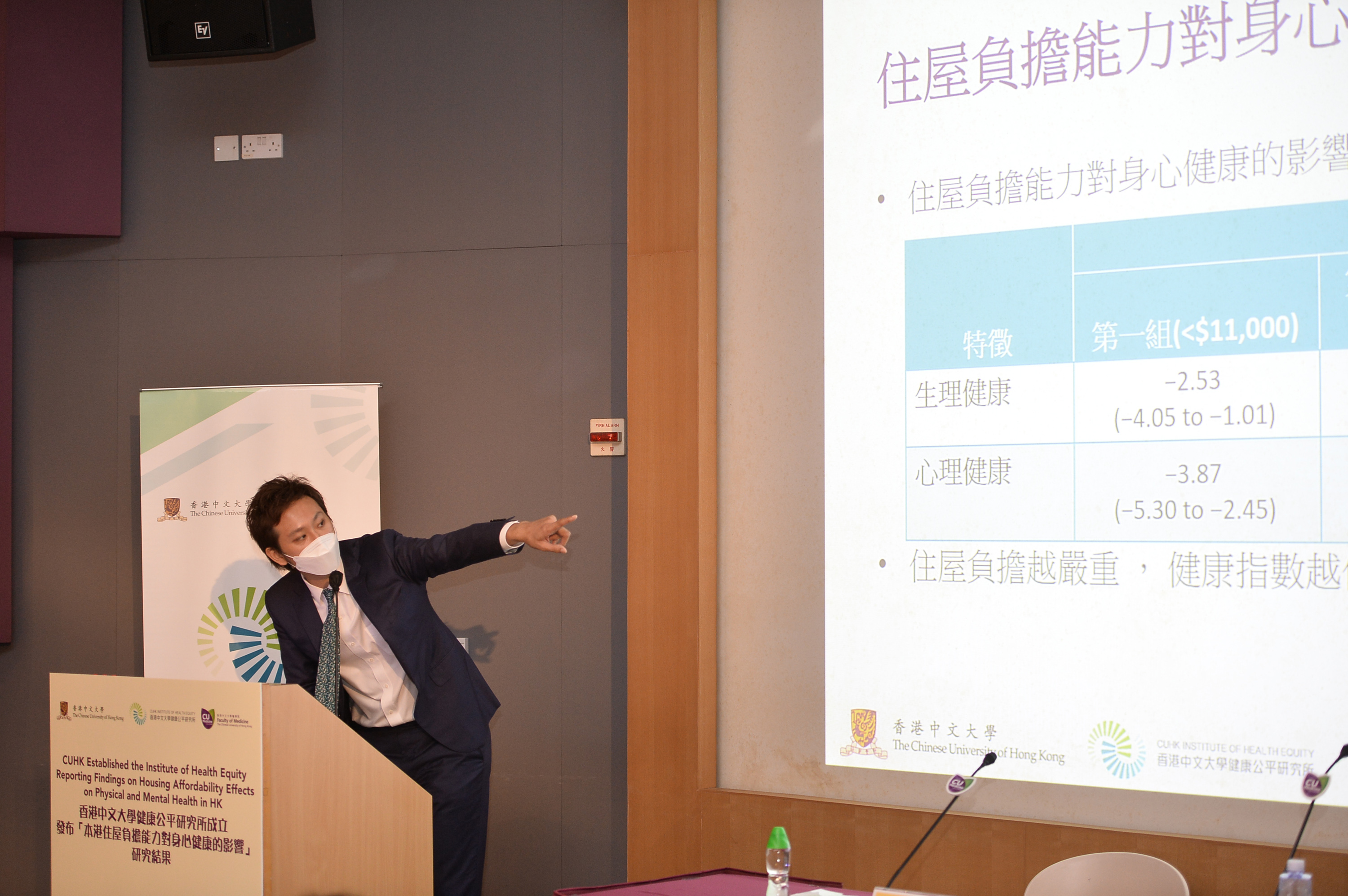
Professor Roger CHUNG says this study reveals that the effect of housing affordability on health is mediated partially through deprivation. Housing policies targeting deprived individuals may help reduce health disparity in addition to targeting the housing affordability problem.
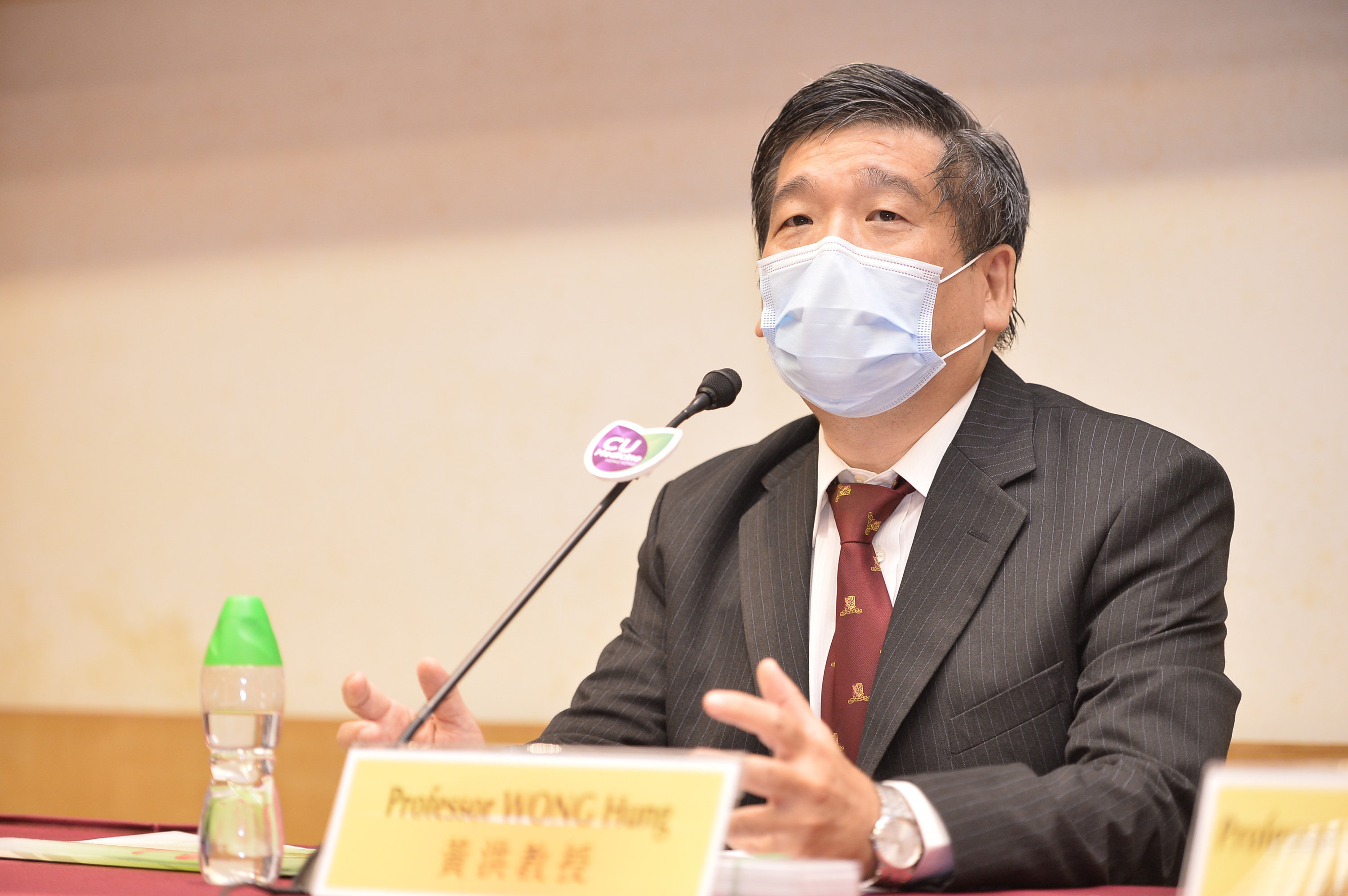
Professor WONG Hung says “deprivation” is a holistic concept to review poverty in society. Deprivation is to measure the lack of command over sufficient resources over time to afford the social and material necessities of life. It has merits over the conventional income measure of poverty to give a more comprehensive and multidimensional picture of the social and material circumstances of the individuals.
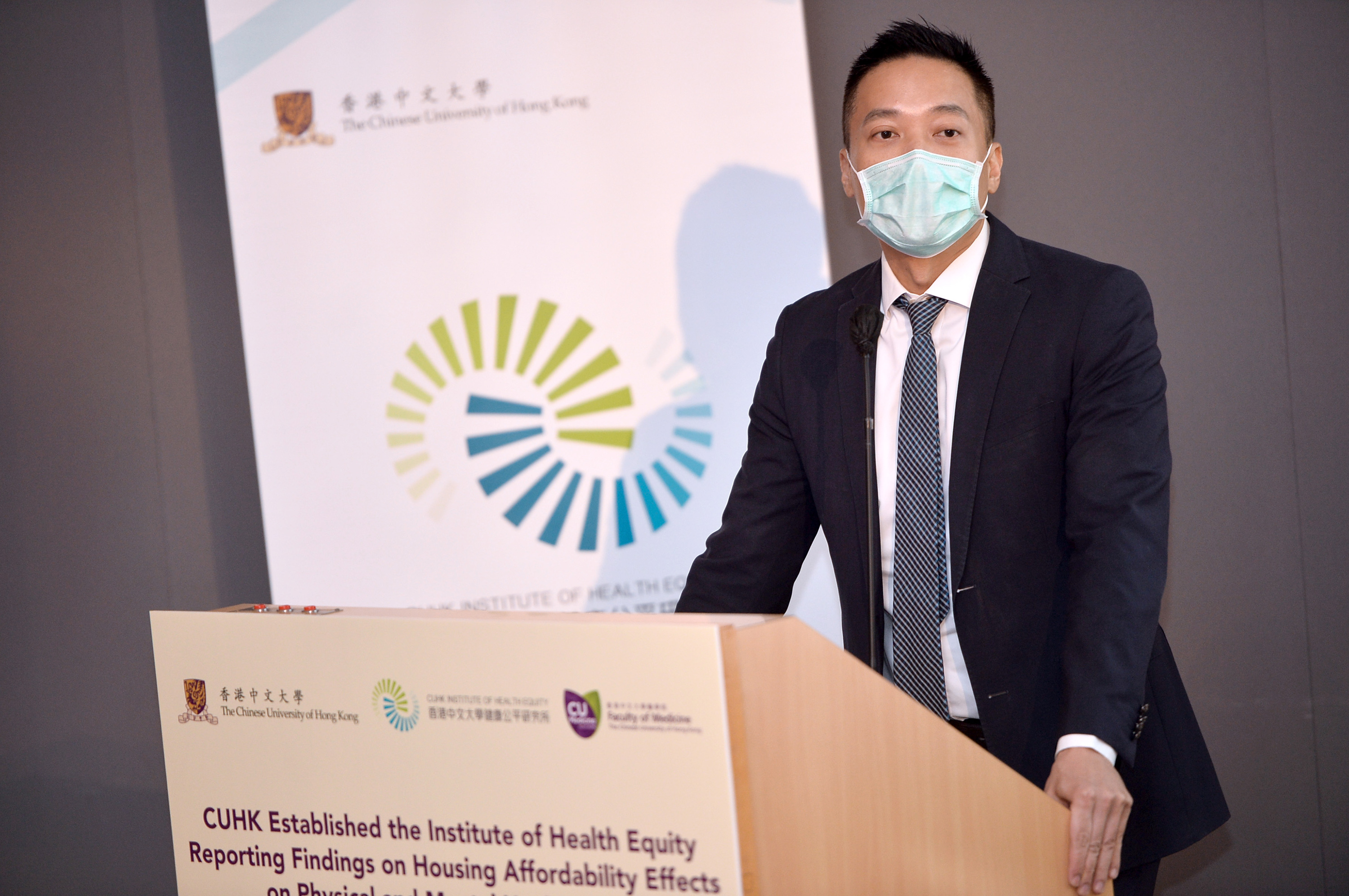
Elaborating on the significance of the study to health inequity in Hong Kong, Professor Roger Yat Nork CHUNG, Associate Director of CUHK Institute of Health Equity and Assistant Professor of the Jockey Club School of Public Health and Primary Care, Faculty of Medicine at CUHK, remarked, “This study highlights the importance of tackling housing affordability in order to improve the health of the Hong Kong population. While high housing cost could induce stress by reducing available income for post housing expenditures, the study also reveals that the effect of housing affordability on health was mediated partially through deprivation, which is manifested by lack of command over resources, even after paying off the housing expenses. Deprived individuals should also be targeted for intervention programmes and policies to tackle health disparity as deprivation of necessities helps exacerbate the problems of unaffordable housing costs. Housing policies targeting deprived individuals may help reduce health disparity in addition to targeting the housing affordability problem.”
Professor WONG Hung, Associate Director of CUHK Institute of Health Equity and Associate Professor of the Department of Social Work at CUHK, explained, “Income is a conventional measure of poverty level. In this study, we apply the concept of deprivation to measure the lack of command over sufficient resources over time to afford the social and material necessities of life. It has merits over the conventional income measure of poverty to give a more comprehensive and multidimensional picture of the social and material circumstances of the individuals.”
CUHK Institute of Health Equity will study health inequity in COVID-19 and factors contributing to long life expectancy and health disparities in Hong Kong
The CUHK Institute of Health Equity was established in 2020 with the vision of being a leading institution in promoting health equity studies in the Asian region. It aims to promote researches in health equity in Hong Kong and Asia, investigate if disparities exist in different communities and analyse them and the contributing societal factors. In collaboration with the University College London (UCL) Institute of Health Equity, the CUHK Institute of Health Equity will examine issues of health equity in Hong Kong so as to inform government policies and intervention programmes to improve the health equity of Hong Kong. Professor Sir Michael MARMOT from UCL, Professor E. K. YEOH and Professor Jean WOO from CUHK are Co-Directors of the Institute. Ongoing research projects aim to examine the health inequity situation in COVID-19 in Hong Kong, and factors contributing to the long life expectancy and health disparities in Hong Kong.
Professor Sir Michael MARMOT, Co-Director of CUHK Institute of Health Equity and Director of the UCL Institute of Health Equity, stated, “The overall health of a country or a city has much to do with the social determinants of health than it does to do with the organisation of the healthcare system. The Institute will investigate what is responsible for Hong Kong’s long life expectancy and the inequalities in health within Hong Kong – what was responsible for it and what can be done about it. The focuses of the Institute will be on research, training and influence on policy.”
For more information about the Institute, please visit www.ihe.cuhk.edu.hk.


